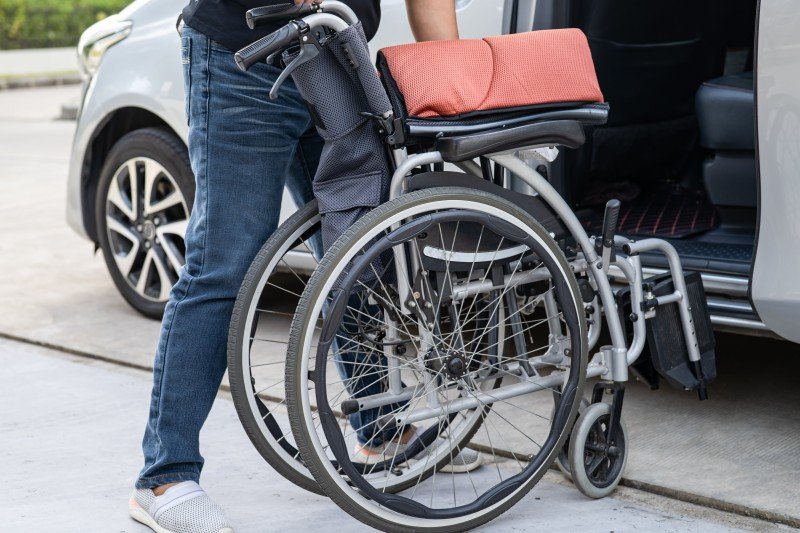Exploring Disability Scooters for Sale Near Me: A Comprehensive Guide
In the modern world, mobility help have actually ended up being significantly advanced and available, boosting the quality of life for people with disabilities. Amongst these help, disability scooters stand apart as a flexible and efficient solution, offering liberty and self-reliance to those who may find traditional strolling aids restricting. This short article digs into the world of disability scooters, checking out how they work, the benefits they provide, and where to discover them for sale near you.
What Are Disability Scooters?
Disability scooters, also understood as mobility scooters or electric scooters, are motorized vehicles designed to help individuals with mobility issues. These scooters are usually geared up with a seat, handlebars for steering, and a variety of features that boost convenience and security. They are powered by rechargeable batteries and can be used both indoors and outdoors, depending on the model.
Types of Disability Scooters
Three-Wheeled Scooters
- Pros: More maneuverable in tight areas, lighter and often simpler to transfer.
- Cons: Less stable on uneven surfaces, might feel less safe for some users.
Four-Wheeled Scooters
- Pros: Greater stability and balance, better for outside use, specifically on rough terrain.
- Cons: Less maneuverable in tight areas, normally heavier and more difficult to transfer.
Travel Scooters
- Pros: Designed for easy disassembly, making them perfect for travel.
- Cons: May have a much shorter variety and lower speed compared to full-sized designs.
Durable Scooters
- Pros: Built to support greater weight capacities, often more resilient and durable.
- Cons: Heavier and less portable, might require more upkeep.
Standing Scooters
- Pros: Provide an option for users who prefer or require to stand.
- Cons: Less common, might not be as comfortable for long-lasting usage.
Advantages of Disability Scooters
Enhanced Mobility
- Disability Scooters For Sale Near Me scooters enable users to travel longer ranges and browse numerous environments with ease, from supermarket to outside parks.
Increased Independence
- By decreasing the need for support, these scooters empower users to maintain their self-reliance and perform everyday activities more easily.
Enhanced Quality of Life
- Scooters can considerably boost social and recreational activities, enabling users to take part in neighborhood events and keep a more active lifestyle.
Cost-efficient
- Compared to other mobility help like power wheelchairs, scooters are typically more inexpensive and have lower upkeep costs.
Adjustable
- Lots of scooters featured choices for modification, consisting of adjustable seats, speed settings, and additional security functions.
Where to Find Disability Scooters for Sale Near Me
When trying to find disability scooters for sale, there are numerous options offered to ensure you discover the best fit for your needs.
Local mobility scooter online Aid Stores
- Pros: Opportunity to check drive and see the scooters in person, educated staff for individualized recommendations.
- Cons: Limited choice compared to online stores, might be more pricey due to overhead costs.
Online Retailers
- Pros: Wide range of models and brands, often more competitive rates, convenience of shopping from home.
- Cons: Can not test drive before purchasing, potential shipping costs and delays.
Specialty Dealers
- Pros: Specialized in folding mobility scooters near me help, frequently offer extended guarantees and funding alternatives.
- Cons: May be more expensive, fewer physical places.
Second-Hand Markets
- Pros: Affordable options, chance to inspect and evaluate the scooter before buying.
- Cons: Limited warranty, might require upkeep or repair work.
What to Consider When Buying a Disability Scooter
User Needs and Abilities
- Physical Condition: Consider the user's strength, dexterity, and stability.
- Way of life: Think about where the scooter will be utilized most frequently (inside your home, outdoors, both).
Scooter Features
- Variety and Battery Life: Ensure the scooter can deal with the ranges you need to travel.
- Speed and Maneuverability: Choose a scooter that matches your speed choices and the spaces you browse.
- Weight Capacity: Verify that the scooter can support the user's weight.
- Storage and Transport: If you need to carry the scooter, look for designs that are lightweight or easy to disassemble.
Safety and Comfort
- Braking System: Check for trusted and responsive brakes.
- Seating: Opt for a comfortable and adjustable seat.
- Lighting and Accessories: Consider features like headlights, turn signals, and baskets for included convenience.
Budget and Financing
- Preliminary Cost: Compare prices from various retailers.
- Upkeep Costs: Factor in the cost of batteries, repairs, and routine upkeep.
- Funding Options: Some dealers offer financing or lease-to-own programs.
Service warranty and Support
- Guarantee: Look for a comprehensive service warranty that covers both parts and labor.
- Consumer Support: Ensure the retailer uses reliable client service and assistance.
FAQs About Disability Scooters
Q: Are disability scooters covered by insurance?
- A: Many insurance coverage policies, consisting of Medicare, can cover a part of the expense of a disability scooter. Nevertheless, coverage differs, so it's vital to consult your supplier for particular details and requirements.
Q: How frequently do I require to charge the battery?
- A: The frequency of battery charging depends on the design and use. Generally, you must charge the battery after each use or at least once a week if the scooter is not utilized day-to-day.
Q: Can I utilize a disability scooter on public transport?
- A: Yes, lots of disability scooters are designed to be transportable and can be used on public transport, such as buses and trains. However, it's a good idea to inspect the particular guidelines and guidelines of your regional transit authority.
Q: Are there any age constraints for using disability scooters?
- A: There are no stringent age restrictions, but users should have the ability to operate the scooter safely. Numerous scooters are designed for older grownups, but they can be used by anyone who needs assistance with mobility.
Q: Can I customize a disability scooter to fit my specific needs?
- A: Many scooters provide personalization alternatives, such as adjustable seats and speed settings. For more substantial adjustments, it's best to consult with an expert mobility help supplier.
Tips for Buying a Disability Scooter
Research study Thoroughly
- Check out Reviews: Look for reviews from other users to get a sense of the scooter's efficiency and dependability.
- Compare Models: Consider different designs and brand names to find the one that best meets your needs.
Test Drive Before Buying
- If possible, test drive the scooter to ensure it feels comfy and fulfills your requirements.
Request Professional Advice
- Talk to a healthcare service provider or mobility help expert to get individualized suggestions.
Inspect for Local Incentives
- Some city governments and organizations provide incentives or subsidies for purchasing disability scooters. Consult your local disability services to learn more.
Consider Future Needs

- Consider any prospective changes in your physical condition that may impact your scooter requires in the future.
Disability scooters are a valuable tool for enhancing mobility and self-reliance for people with specials needs. By considering the user's requirements, the features of the scooter, and the available choices for purchase, you can discover the perfect scooter to fit your way of life. Whether you're going shopping at a regional store or searching online, putting in the time to research study and test drive various models will guarantee you make an informed and helpful choice. With the ideal scooter, the world ends up being a more accessible and pleasurable location.
Extra Resources
- mobility scooters near me Aid Providers: Check regional listings for providers specializing in disability scooters.
- Online Reviews: Websites like Consumer Reports and mobility help online forums provide detailed reviews and user feedback.
- Government Programs: Look into regional and national programs that offer financial help for mobility help.
By exploring these resources and following the tips laid out in this article, you can confidently find and buy a disability scooter that satisfies your specific needs and enhances your day-to-day life.

















